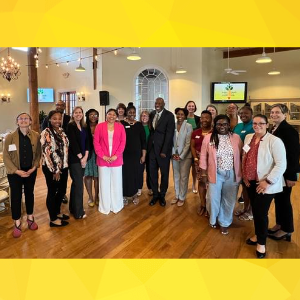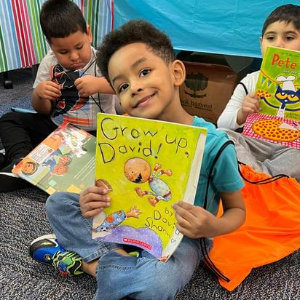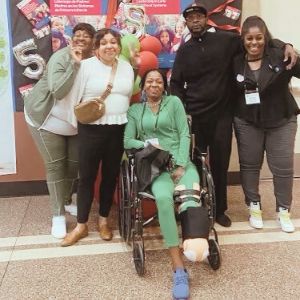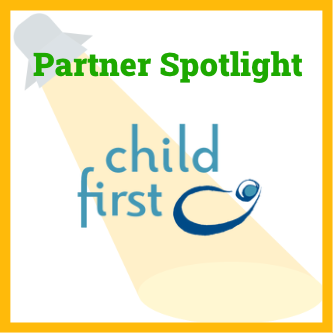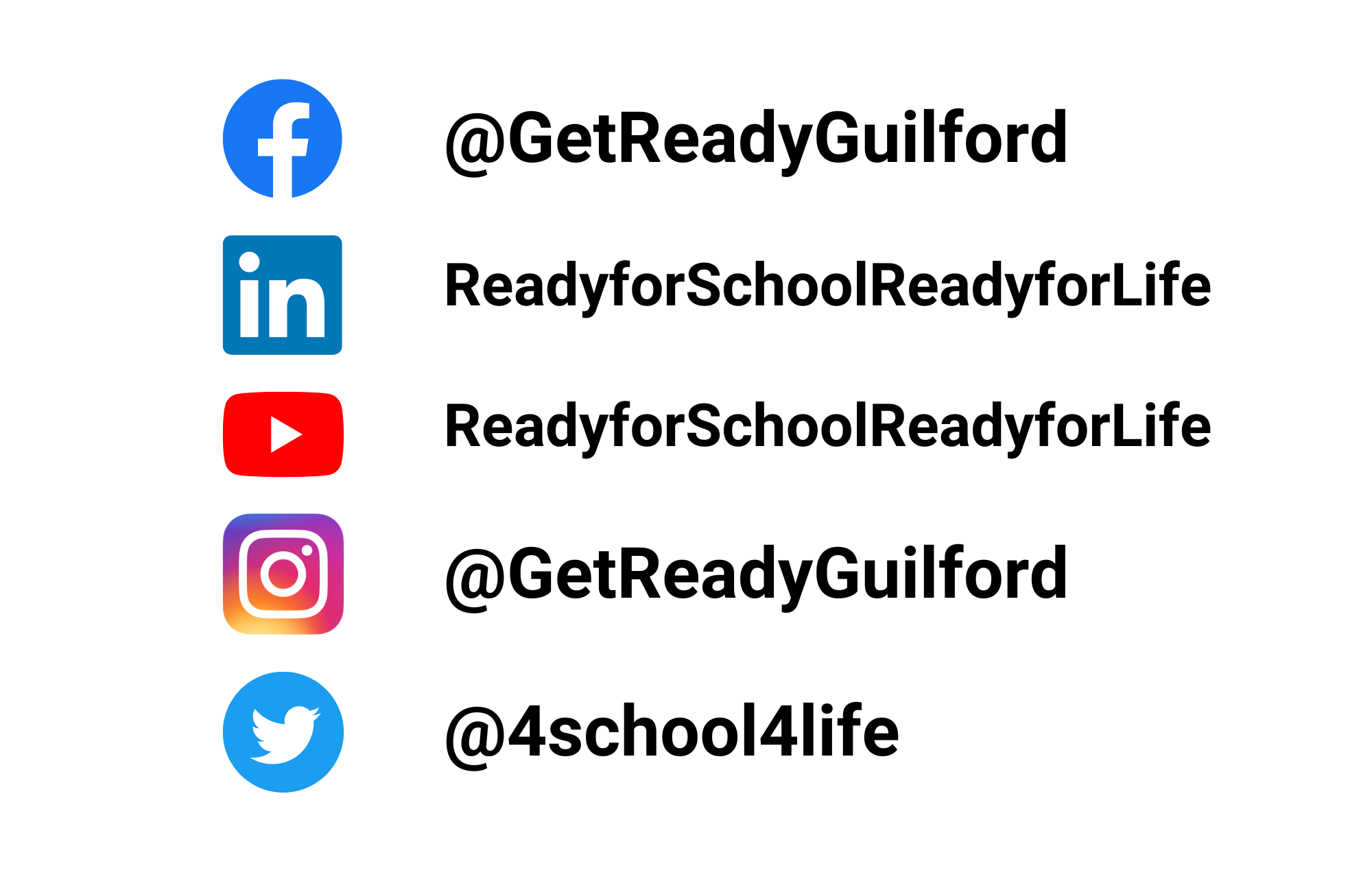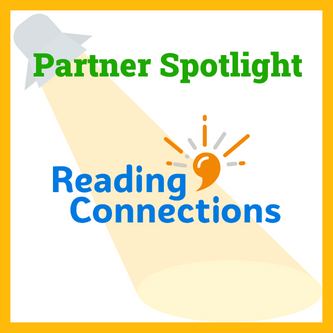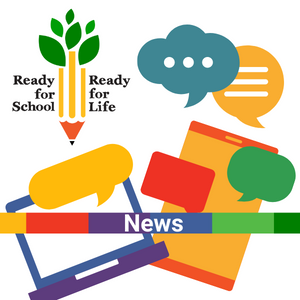“I’m really excited about joining Ready Ready’s CQI cohort, “ said Jakki Davis, executive director of D-Up, a High Point-based nonprofit focused on helping youth and families. “We’ve done a great job of developing relationships and rapport with our families, but we want to do even better. CQI is going to help us better assess needs and build capacity.”
Ready Ready is excited to extend the opportunity and the funding to organizations like D-Up to join our Continuous Quality Improvement (CQI) initiative. These selected organizations and their programs will play a central role, under Ready Ready’s guidance, in strengthening and enhancing the Ready Ready continuum of early childhood support services.
D-Up’s mission is to promote education, health, and life readiness to young children and their families. While its origins began in 2007 around combating childhood obesity through basketball, the organization quickly developed new programs to meet the community’s needs. Currently, the organization offers 16 programs ranging from pre-K to afterschool care, sports, dance, summer camps, college preparation, and adult classes like financial literacy.
“When we started our nonprofit, the youngest children enrolled were age five,” Davis said. “After we came out of COVID, we realized we needed to go younger. Just this fall we started a pre-K pilot. We’ve eliminated barriers like transportation and are helping this first class of young students prepare for kindergarten three days a week.”
Davis says the nonprofit’s move to a building on Washington Street in High Point served as a catalyst for reaching more families. So much so that word of mouth keeps the programs, afterschool care, and summer camp full and with a developing waitlist. D-Up is on the cusp of launching a capital campaign to enlarge its facility, increasing its ability to serve students from around 50 to 170. That’s one reason why learning to build additional capacity through Ready Ready’s CQI initiative is so attractive.
“We pride ourselves on the family connections,” Davis said. “Every parent wants their child to thrive and we want to be there to help them. We want to be their bridge to whatever it is they need to ensure that they thrive.”
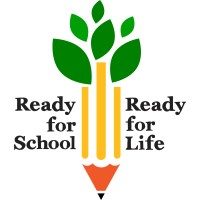

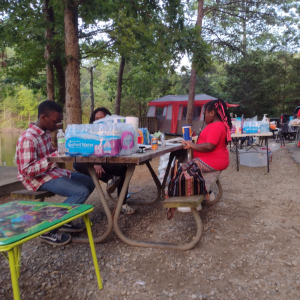
 The group of about two dozen pitched their tents and set up camp with a scenic view of Oak Hollow Lake. Children and parents explored the lakeside and played games. After a week of rain, the weather held for the campers.
The group of about two dozen pitched their tents and set up camp with a scenic view of Oak Hollow Lake. Children and parents explored the lakeside and played games. After a week of rain, the weather held for the campers. “This speaks volumes to others around who were watching, which shows that there is truly strength in numbers and that fathers are still involved with their families,” Pierce said. “It was powerful that we were able to come together and join in on something positive for our families.”
“This speaks volumes to others around who were watching, which shows that there is truly strength in numbers and that fathers are still involved with their families,” Pierce said. “It was powerful that we were able to come together and join in on something positive for our families.”




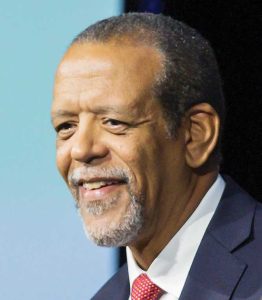 Ron Ferguson launched The Basics movement seven years ago, while the Faculty Director of the Achievement Gap Initiative at Harvard University. Across 40 years at Harvard Kennedy School, his teaching, research, and social entrepreneurship have always focused on human and economic development, culminating with his current focus on early-childhood parenting and caregiving, as foundations for all that follows. Today, the Basics Learning Network has affiliated coalitions in nearly 100 communities in the US, Australia, Bermuda, Brazil, and Canada.
Ron Ferguson launched The Basics movement seven years ago, while the Faculty Director of the Achievement Gap Initiative at Harvard University. Across 40 years at Harvard Kennedy School, his teaching, research, and social entrepreneurship have always focused on human and economic development, culminating with his current focus on early-childhood parenting and caregiving, as foundations for all that follows. Today, the Basics Learning Network has affiliated coalitions in nearly 100 communities in the US, Australia, Bermuda, Brazil, and Canada. 